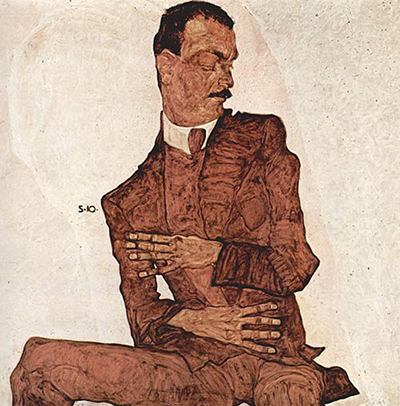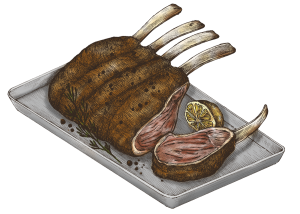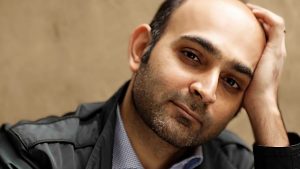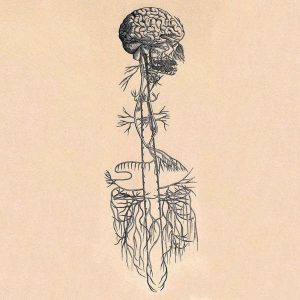I walked out of the lift into darkness. Where was I?
The light leaking beneath the door revealed hung silos of shirts and suits – I’d entered a walk-in wardrobe.
To the left, there was a little shrine with a photo of a guru, an incense holder and a candle.
Welcome to Washington D.C.
Putting the tent I was carrying down, I brushed my fingers along the wall, feeling for a light switch. There was an entire bank of them so I flicked them all with a clumsy upward thrust of my palm.
A gasp went up from the fifty-odd guests milling a few floors below me.
Oh dear, I thought. Not the impression I wanted to make on my wife’s uncle on my first visit to his Washington D.C. home. Nor on the guests below at his annual Christmas Eve shindig who were now spilling high-end champagne over one another in the sudden darkness.
This wasn’t the first time I’d encountered a lift in a house. Nor a master control panel that could suck light out of entire floors in one swift movement. Teaching yoga at a house on Kensington High Street to a taut American woman called Helen, I discovered that her domestic help travelled the townhouse’s many floors via an internal lift, arms laden with crisp linen and a caddy of cleaning products.
I’d arrive at her elegant Georgian terrace at 9am, just as the Pilates instructor was leaving, and leave just as her masseuse was arriving. Buzzing her conveyor belt of wellness people in, Helen seemed exhausted, her cheeks pinched and the blood always falling from her face. Perhaps this was why she didn’t hear the plaintive and apologetic cries of her Columbian maid trapped in the lift during one of our classes. Churning out her sun salutations was like feeding mince through a grinder and I felt for her, for the expectations she placed on herself to be doing all the right things, though even I could see her body and soul were in revolt.
It’s easily done, though. Most of us think we’re following our own muse when we’re most likely following the subtle signals of our cultural conditioning. I know I am.
Like the hired help in Helen’s house, the army of catering staff in my wife’s Uncle’s house were also Latino, and were dressed far better than me.
“I like your shoes,” one guest, the boyfriend of my wife’s cousin, and a banker of Punjabi heritage confided in me.
I looked down at my camel-coloured Cuban heels. Was he was being sarcastic? For years, I’d kept these shoes in a filing cabinet in my office as a back-up for when I got drenched cycling to work. They were scuffed and curled up at the toe like winklepickers.
Looking up, the banker winked at me and with a smirk, wheeled away, holding a champagne flute like an Olympic torch above himself as he carved a path through the guests.
Several years later, I heard he got punched in the face during an altercation on the subway and had to have his jaw wired up. It didn’t surprise me. Not that I disliked him. In a room full of diamond-smile winners, his nastiness was quite refreshing. And we ended up bonding over a shared appreciation of Herman Hesse’s Steppenwolf later in the evening. Very apt, I thought.









0 Replies to “Life-Changing Injury (1/2)”